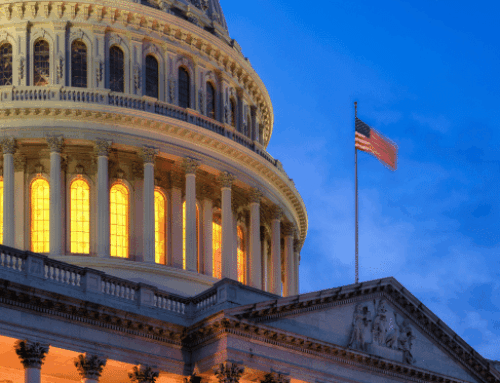Recent reductions in projected federal budget surplus estimates for this year have prompted the White House to call on Congress to control spending. Judging by their actions on this year's spending bills that is about as likely as pigs flying.
The Congressional Budget Office last month reduced surplus estimates from $275 billion to $200 billion. Senate Majority Leader Tom Daschle (D-SD) and Senate Budget Committee Chairman Kent Conrad (D-ND), claim that reduced revenues from the economic slowdown and the enactment of the president's tax cut will reduce budget surpluses and force Congress to dip into the Medicare and Social Security funds to help pay for the new spending.
To prevent having to dip into Medicare and Social Security funds the White House has put the onus on Congress to control spending. That will be difficult. The House Appropriations Committee has already received nearly 19,000 project requests that would cost taxpayers $279.4 billion. The House has increased spending in many of the bills considered thus far.
The Energy and Water Appropriations bill that the House passed last week totaled $23.7 billion, which was $1.2 billion over the President's budget request. The House also last week approved an increase of $9 billion for veterans' education benefits.
Other spending in Congress may also stymie President Bush's call to reduce government spending. Congress is getting ready to consider a Medicare prescription drug benefit program and will soon have to reconcile the Senate and House versions of the president's multibillion dollar education plan.
Emergency spending could also complicate efforts to keep the government out of the red. Congress has averaged $8 billion per year in emergency spending over the last decade. The House Agriculture Committee has already approved a $5.5 billion increase in emergency farm aid this year, making it hard to believe that emergency spending will be reined in as President Bush had hoped.
Members of Congress are not the only ones pushing spending higher. Recently Secretary of Defense Rumsfeld requested an additional $18.4 billion for defense spending. Even House Budget chair Jim Nussle (R-IA) considered the request outrageous, saying that the Administration cannot expect Congress to keep spending down when they make a request of that kind.
Obviously it's important that Congress restricts spending, but counting on Congress to be fiscally responsible is like betting your house on a Chicago Cubs-Boston Red Sox World Series. It could happen, but it's not likely. Hold onto your wallets, all hell is going to break loose in this year's budget battles.
Additional Resources:
HOUSE BUDGET COMMITTEE (Democratic Caucus): Bush Tax Cut and Defense Request Spend Medicare Surplus
SENATE BUDGET COMMITTEE: The Size of the Available Budget Surplus: A Fact Sheet








